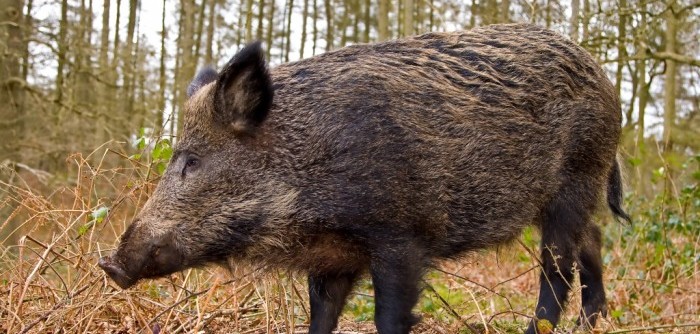Thirteen countries have now banned Belgian pork and pork products, following confirmation of African swine fever in the south of the country last week.
After the virus was initially found in wild boar in the Luxembourg region of Belgium, near the French border, on Friday, the total number of confirmed cases has now risen to 10, all from the same small geographical area. It is expected that more cases will be confirmed in an area that is heavily populated with wild boar
The Belgian authorities said ‘very few’ domestic pigs are kept in this region and that the risk of domestic pigs becoming infected with ASF remains ‘limited’. Sixty commercial pig farms closest to the restriction zone have been screened for ASF – all proved negative, according to an update on the NPA website from Andrew Knowles, of ForFarmers, which has operations in Belgium.
Nonetheless, a number of non-EU countries have responded by banning pork exports from Belgium for what is expected to be at least the next six months. The 13 countries to have done so are: South Korea, China, Taiwan, Belarus, Mexico, The Philippines, Japan, South Africa, Serbia, Singapore, Uruguay, Australia, and Malaysia.
As a result, it is expected that pig prices will fall in Belgium. Pigs from Belgium pigs normally slaughtered in the Netherlands will now, for a while at least, be slaughtered in Belgium.
The UK could not ban Belgian exports even if it wanted to. The EU has agreed on a regionalised approach where fresh or frozen pig meat from ASF-restricted zones cannot be sold to other EU member states, but commercially produced fresh or frozen pig meat derived from pigs raised outside the restriction zones can continue to be traded.
NPA chief executive Zoe Davies said: “While that does bring some obvious concerns, it is also worth bearing in mind that, one day, if the worst comes to the worst, we might actually be grateful for that.”




